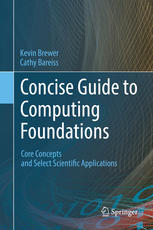

Most ebook files are in PDF format, so you can easily read them using various software such as Foxit Reader or directly on the Google Chrome browser.
Some ebook files are released by publishers in other formats such as .awz, .mobi, .epub, .fb2, etc. You may need to install specific software to read these formats on mobile/PC, such as Calibre.
Please read the tutorial at this link: https://ebookbell.com/faq
We offer FREE conversion to the popular formats you request; however, this may take some time. Therefore, right after payment, please email us, and we will try to provide the service as quickly as possible.
For some exceptional file formats or broken links (if any), please refrain from opening any disputes. Instead, email us first, and we will try to assist within a maximum of 6 hours.
EbookBell Team

4.0
26 reviewsThis book will help future scientists to become more intelligent users of computing technology in their practice of science. The content is suitable for introductory courses on the foundations of computing and the specific application of computers in different areas of science. The text presents a set of modules for use in existing science courses in order to integrate individual aspects of computational thinking, as well as a set of modules introducing the computer science concepts needed to understand the computing involved. These modules guide science students in their independent learning. The book covers computing applications in such diverse areas as bioinformatics, chemical kinetics, hydrogeological modeling, and mechanics of materials, geographic information systems, flow analysis, the solving of equations, curve fitting, optimization, and scientific data acquisition. The computing topics covered include simulations, errors, data representation, algorithms, XMS, compression, databases, performance, and complexity.